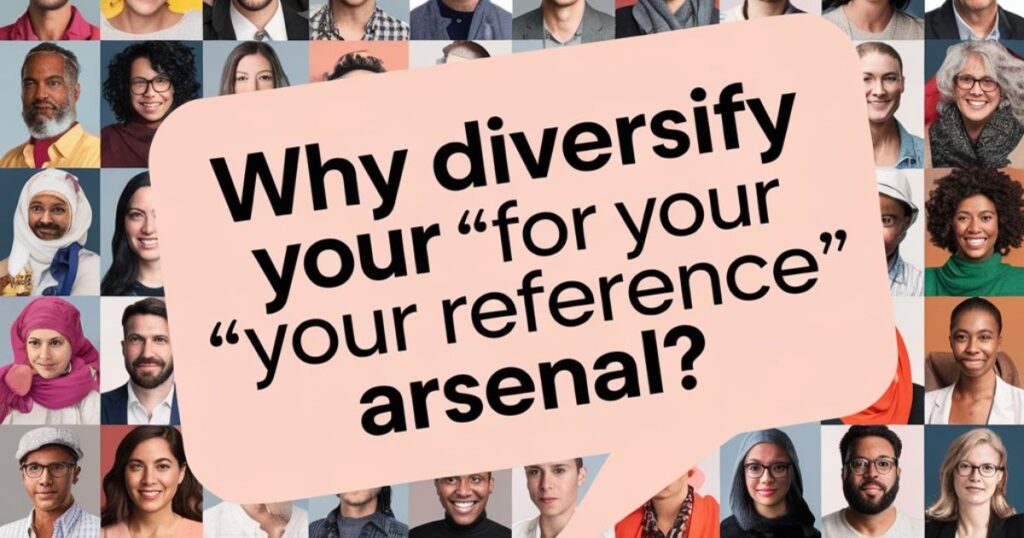In the fast-paced world of professional communication, it’s easy to fall into the trap of using the same phrases repeatedly. “For your reference” is one such phrase that, while useful, can become stale when overused. But fear not! This comprehensive guide will explore 20 alternative ways to convey the same meaning, helping you breathe new life into your emails, memos, and other professional correspondence.
Why Diversify Your “For Your Reference” Arsenal?

Before we dive into the alternatives, let’s consider why it’s crucial to vary your language in professional settings.
The Power of Language in Professional Settings
The words we choose profoundly impact how we’re perceived in the workplace. Using varied and precise language can:
- Enhance your credibility
- Demonstrate your attention to detail
- Show respect for your audience’s time and intelligence
- Keep your communication fresh and engaging
Did you know? A study by the Harvard Business Review found that professionals who use more diverse vocabulary in their communications are perceived as 28% more competent by their peers and superiors.
Adapting to Different Contexts
Not all professional situations are created equal. The phrase you choose should reflect:
- The formality of the situation
- Your relationship with the recipient
- The industry you’re in
- The complexity of the information you’re referencing
By tailoring your language to the context, you show adaptability and social intelligence – key traits in any professional environment.
Alternative Ways of Saying “For Your Reference”
Now, let’s explore our 20 alternatives to “for your reference,” each with its unique flavor and appropriate usage.
1. Perusal Purposes
“For your perusal” implies a careful reading or examination. It’s a slightly more formal alternative that works well in traditional business settings.
Example: “I’ve attached the quarterly report for your perusal.”
2. Consult the Following
This phrase suggests that the recipient might need to refer back to the information multiple times. It’s handy for important documents or guidelines.
Example: “Please consult the following safety procedures before operating the new equipment.”
3. Reference the Attached
A straightforward alternative that works well for both digital and physical attachments. It’s clear and to the point.
Example: “Please reference the attached spreadsheet for the latest sales figures.”
4. Review at Your Convenience
This phrase adds a touch of flexibility, indicating that the recipient can look at the information when it suits them best.
Example: “I’ve sent over the project proposal. Please review at your convenience and let me know your thoughts.”
5. Examine the Enclosed
Traditionally used for physical mail, this phrase can also be adapted for digital communication. It implies a thorough look at the provided information.
Example: “Kindly examine the enclosed contract and return it with your signature if everything looks satisfactory.”
6. Investigate the Following
This alternative encourages active engagement with the material. It’s particularly useful when you want the recipient to dig deep into the information.
Example: “To understand our new marketing strategy, please investigate the following market research data.”
7. Delve Into the Details
A more informal option that still conveys the importance of thorough examination. It’s great for team communications or when you have a closer relationship with the recipient.
Example: “I’d appreciate it if you could delve into the details of this customer feedback report.”
8. Explore the Document
This phrase carries connotations of discovery, making it ideal for new or complex information that might require some time to understand fully.
Example: “Take some time to explore the document outlining our new product features.”
9. Absorb the Information
Use this when you want to emphasize the importance of not just reading, but internalizing the information provided. 20 Ways To Say “For Your Reference”.
Example: “Before our strategy meeting, please absorb the information in this market analysis.”
10. Scrutinize the Details
This alternative implies a need for careful, critical examination. It’s perfect for situations where accuracy is paramount.
Example: “Our legal team needs you to scrutinize the details of this contract before we proceed.”
11. Refer to the Following
A close cousin to “for your reference,” this phrase is versatile and can be used in a wide variety of professional contexts.
Example: “For questions about our new benefits package, please refer to the following HR guidelines.”
12. Analyze the Enclosed Information
When you want to encourage critical thinking and deeper understanding, this phrase is an excellent choice. 20 Ways To Say “For Your Reference”.
Example: “To prepare for our budget meeting, please analyze the enclosed information on our Q3 expenditures.”
13. Inspect the Attached
This alternative emphasizes thoroughness and works well for both digital and physical attachments.
Example: “Please inspect the attached blueprints and provide your feedback by Friday.”
14. Consider the Following
Use this when you want to encourage thoughtful review of the information provided.
Example: “As we discuss our expansion plans, please consider the following market research data.”
15. Perceive the Information Below
This unique phrasing implies not just reading, but understanding and internalizing the provided information.
Example: “To fully grasp our new company vision, please perceive the information below.”
16. Navigate the Document
Ideal for complex or lengthy documents, this phrase implies guiding the reader through the information.
Example: “Take your time to navigate the document detailing our new project management system.”
17. Survey the Contents
When you want the recipient to get a quick overview rather than a deep dive, this is the phrase to use.
Example: “Before our call, please survey the contents of the attached agenda.”
18. Examine the Provided Information
A formal alternative that works well in most professional contexts.
Example: “Kindly examine the provided information on our new compliance procedures.”
19. Investigate the Attached Materials
Use this when sending multiple documents or complex information that requires a thorough review.
Example: “Please investigate the attached materials regarding our upcoming merger.”
20. For Your Consideration
While similar to “for your reference,” this phrase implies that action or decision-making might be required after reviewing the information.
Example: “I’ve outlined three potential strategies for your consideration.”
Mastering the Art of Reference Phrases

Now that we’ve explored these alternatives, let’s discuss how to use them effectively.
Context is Key
Always consider the context when choosing your phrase:
- Who is your audience?
- What’s the nature of your relationship with them?
- How formal is the situation?
- What industry are you in?
Tone and Formality
Match your phrase to the desired tone of your communication:
| Phrase | Formality Level | Best Used For |
|---|---|---|
| Perusal Purposes | High | Formal business communications |
| Delve Into the Details | Low | Team or peer communications |
| Scrutinize the Details | Medium | Legal or financial contexts |
| Review at Your Convenience | Medium | Non-urgent requests |
Conclusion
Expanding your professional vocabulary is a simple yet effective way to enhance your communication skills. By incorporating these 20 alternatives “for your reference,” you’ll not only avoid repetition but also demonstrate your linguistic versatility and attention to detail.
Remember, effective communication is about more than just conveying information – it’s about engaging your audience, showing respect for their time and intelligence, and presenting yourself as a thoughtful, articulate professional. 20 Ways To Say “For Your Reference”.
FAQs
Q: When should I use “for your reference” versus these alternatives?
A: Use “for your reference” when you want a neutral, all-purpose phrase. Choose alternatives based on the specific context, formality level, and the action you want the recipient to take with the information.
Q: Are there industry-specific phrases I should be aware of?
A: Yes, many industries have their jargon. For example, in legal contexts, “for your review and counsel” is common. Always familiarize yourself with industry-specific terms.
Q: How can I remember to use these alternatives in my day-to-day communication?
A: Practice is key. Try setting a goal to use a new phrase each day or week. You can also create a quick reference list to keep handy while writing emails.
Q: Are there any phrases to avoid in certain situations?
A: Avoid overly casual phrases in formal situations, and steer clear of complex language when simple will do. Always consider your audience and the context.
Q: Can use varied language impact my professional image?
A: Absolutely! Varied and precise language demonstrates your communication skills, attention to detail, and respect for your audience – all of which can positively impact your professional image.











